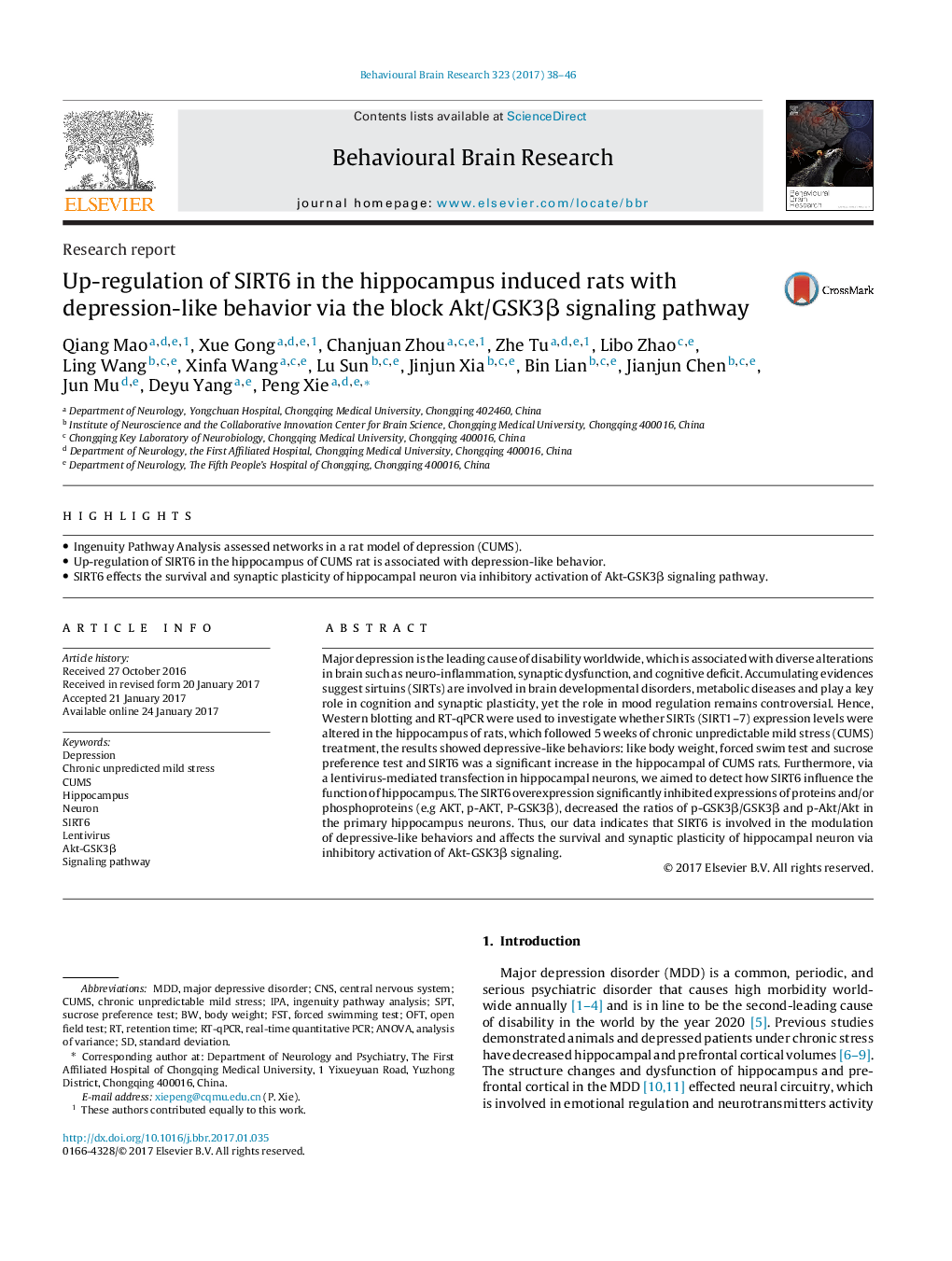| Article ID | Journal | Published Year | Pages | File Type |
|---|---|---|---|---|
| 5735622 | Behavioural Brain Research | 2017 | 9 Pages |
â¢Ingenuity Pathway Analysis assessed networks in a rat model of depression (CUMS).â¢Up-regulation of SIRT6 in the hippocampus of CUMS rat is associated with depression-like behavior.â¢SIRT6 effects the survival and synaptic plasticity of hippocampal neuron via inhibitory activation of Akt-GSK3β signaling pathway.
Major depression is the leading cause of disability worldwide, which is associated with diverse alterations in brain such as neuro-inflammation, synaptic dysfunction, and cognitive deficit. Accumulating evidences suggest sirtuins (SIRTs) are involved in brain developmental disorders, metabolic diseases and play a key role in cognition and synaptic plasticity, yet the role in mood regulation remains controversial. Hence, Western blotting and RT-qPCR were used to investigate whether SIRTs (SIRT1-7) expression levels were altered in the hippocampus of rats, which followed 5 weeks of chronic unpredictable mild stress (CUMS) treatment, the results showed depressive-like behaviors: like body weight, forced swim test and sucrose preference test and SIRT6 was a significant increase in the hippocampal of CUMS rats. Furthermore, via a lentivirus-mediated transfection in hippocampal neurons, we aimed to detect how SIRT6 influence the function of hippocampus. The SIRT6 overexpression significantly inhibited expressions of proteins and/or phosphoproteins (e.g AKT, p-AKT, P-GSK3β), decreased the ratios of p-GSK3β/GSK3β and p-Akt/Akt in the primary hippocampus neurons. Thus, our data indicates that SIRT6 is involved in the modulation of depressive-like behaviors and affects the survival and synaptic plasticity of hippocampal neuron via inhibitory activation of Akt-GSK3β signaling.
